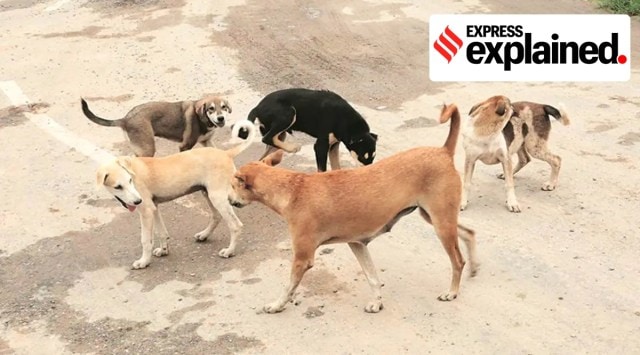Explained: What is Parvovirus that has affected over 2,000 dogs in Maharashtra’s Amaravati city?
While there is no official data available on the number of deaths, as per the animal rescue organisation’s data, 17 stray dogs died during treatment last month.
 Parvovirus has no cure and inoculating a puppy or a dog gives them a fighting chance against the infection.
Parvovirus has no cure and inoculating a puppy or a dog gives them a fighting chance against the infection.Nearly 2,000 pet and stray dogs in Amravati city were affected by canine parvovirus virus last month with veterinarians cautioning pet owners against a severe outbreak.
So, what is Parvovirus?
It is a highly contagious viral disease that can also be life-threatening in puppies and dogs. Parvovirus affects the intestinal tract of canines with puppies being more susceptible. Bloody diarrhoea, vomiting, drastic weight loss, dehydration and lethargy are some of the symptoms. The virus has reported a 90 per cent mortality rate.
Cases in Amravati
Nearly 2,000 pet and stray dogs in Amravati city (50 per cent of the city’s dog population) were affected by the virus last month. Amravati-based WASA Conservation organisation, which is also a rescue centre for stray dogs, said the government-run clinic is getting reports of at least 20 dogs affected by the virus daily. Experts have stated suspect that the recent rise in cases of Parvovirus in pets is due to the Covid-19 pandemic that compelled many pet owners to avoid timely vaccination of their dogs. While due to the non-implementation of the animal birth control programme, which helps control the stray dog population, dog vaccination and rabies in the last three years has led to rising parvovirus cases in street dogs in the city.
While there is no official data available on the number of deaths, as per the animal rescue organisation’s data, 17 stray dogs died during treatment last month.
How does the virus spread in dogs?
The highly contagious virus spreads through direct contact with an infected dog or by indirect contact with a contaminated object, including the hands and clothing of people who handle infected dogs. The dogs can get exposed to the parvovirus every time it sniffs, licks, or consume infected faeces. Indirect transmission occurs when a person who has recently been exposed to an infected dog touches the puppy, or when a puppy encounters a contaminated object, like food or water bowl, collars and leashes.
How to keep canines safe from infection?
Parvovirus has no cure and inoculating a puppy or a dog gives them a fighting chance against the infection. The first dose is given at 45 days old and the second 21 days after the first dose. To properly protect canines, it is necessary to administer the vaccine to them while they are puppies and then continue to do the same every year.
Avoid touching other dogs on the road
Vets have asked pet owners to not take their puppies out if they are not fully vaccinated. They have also been advised to avoid letting the dog touch the ground. Parvo, being a resistant virus, easily survives in the environment, and anything can be contaminated with it, including leaves and grass. Vets have also cautioned pet owners to pet or touch other dogs on the road, as the parvovirus can be transmitted through the touch and clothing of people who have touched infected dogs.
Newsletter | Click to get the day’s best explainers in your inbox
- 01
- 02
- 03
- 04
- 05






































